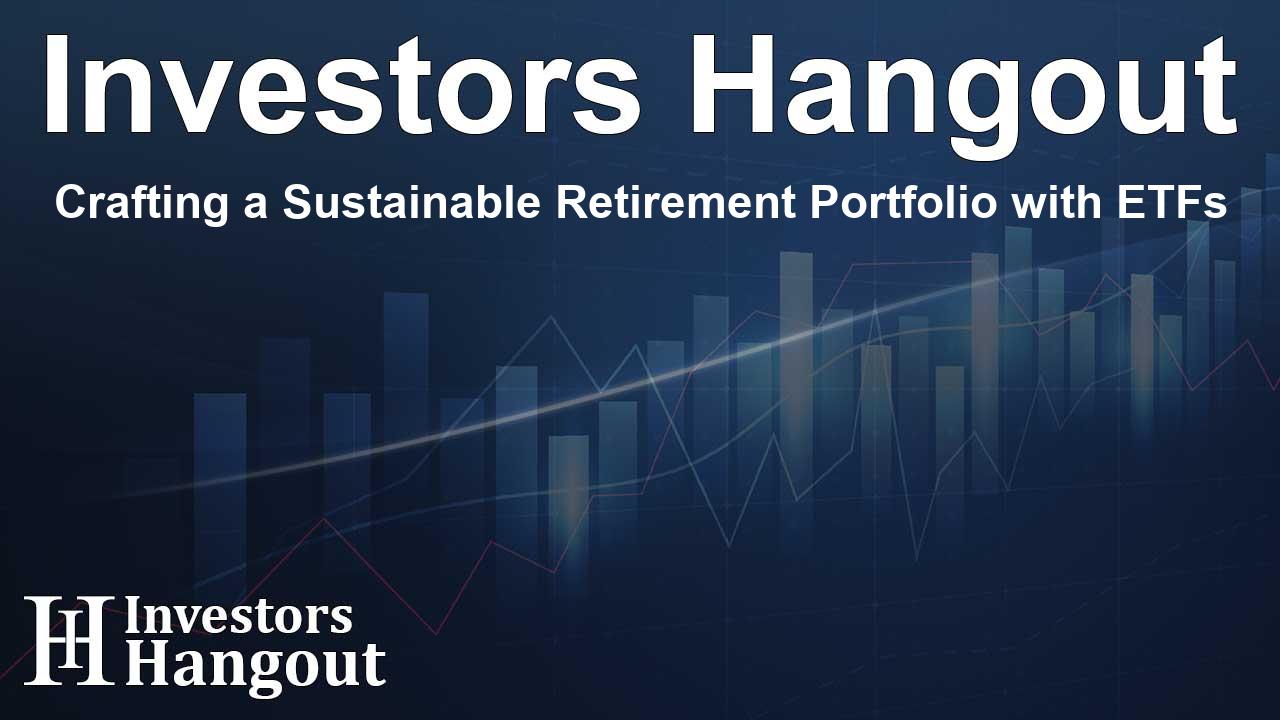Crafting a Sustainable Retirement Portfolio with ETFs

Understanding Your Investment Goals After Retirement
When it comes time to retire, the way you approach investing shifts significantly. Instead of focusing primarily on building your nest egg, the goal transitions to maintaining and utilizing those funds for the enjoyment of life. For many retirees, this means leaning towards income investments, particularly dividend-paying exchange-traded funds (ETFs), to provide a reliable cash flow.
If simplicity is what you seek while you aim to enjoy leisure activities with family, travel, and recreation, two ETFs can help you construct a high-quality, income-producing portfolio. This portfolio can cleverly blend well-regarded stocks and bonds, thereby ensuring stability and growth.
Focusing on the Equity Aspect: Schwab U.S. Dividend Equity ETF
The foundation of any balanced portfolio should be rooted in the equity component. Early in retirement, it's advisable for equities to constitute at least 60% of your investments, and possibly up to 80% if you are a more aggressive investor. The growth that equities historically provide can help your portfolio keep pace with inflation over time, ensuring your funds remain robust.
That’s where the Schwab U.S. Dividend Equity ETF (NYSEMKT: SCHD) comes into play. It emphasizes companies that have consistently increased their dividends for over ten years, focusing on high-quality, growing businesses.
Schwab then employs a thorough selection process to rank these dividend-paying companies based on a composite score. Factors include cash flow to total debt, return on equity, dividend yield, and five-year dividend growth rates. The top 100 scoring companies find their place in the ETF, which strikes an ideal balance between stock quality, yield, and dividend growth—an essential mix for retirees.
One of its appealing features is cost efficiency, with an expense ratio of only 0.06% and a dividend yield close to 3.5%, significantly higher than the S&P 500's meager 1.2%. This favorable positioning can contribute positively to your retirement income strategy.
Balancing Growth with Stability: Vanguard Intermediate-Term Bond ETF
To enhance the foundational elements established by equities, it's crucial to incorporate bonds into your portfolio for added stability. This balance mitigates the volatility commonly inherent in stock investments.
If you can tolerate a moderate level of risk, consider including the Vanguard Intermediate-Term Bond ETF (NYSEMKT: BIV) in your investment strategy. With an exceptionally low expense ratio of 0.04%, this ETF provides a diversely weighted portfolio of high-quality bonds maturing between five and ten years.
Among the many bonds included are U.S. government bonds, investment-grade corporate bonds, and international bonds, all denominated in U.S. dollars. With approximately 55% of assets allocated to U.S. government bonds, this ETF offers a solid income generation while maintaining stability.
Creating a Solid Retirement Portfolio with Two ETFs
With just these two ETFs—Schwab U.S. Dividend Equity ETF and Vanguard Intermediate-Term Bond ETF—you can develop a well-rounded, high-quality, income-generating retirement portfolio. Moreover, you have the flexibility to introduce other higher-yielding securities, allowing you to adapt your investments to your risk tolerance and financial goals.
Annual rebalancing of your stock/bond ratio ensures your portfolio aligns with your retirement objectives, creating a plan that allows peace of mind while enjoying post-retirement life.
Taking Advantage of Market Opportunities
Have you ever felt that you missed an opportunity to invest in a successful stock? You might want to pay attention to current market signals and trends.
Once in a while, analysts call out specific stocks that are poised for potential growth. Should you feel that there’s no more opportunity left, remember that there could be options available that are worth considering before the market shifts again.
Investing in well-reviewed stocks can yield significant returns. If you’re attentive to the market trends and changes, you might just find the right moments to expand or adjust your portfolio for enhanced profitability.
Frequently Asked Questions
What is the importance of ETFs for retirees?
ETFs provide retirees with a way to generate regular income while also offering stability through diversified investments in high-quality stocks and bonds.
How does Schwab U.S. Dividend Equity ETF benefit retirees?
This ETF focuses on companies with a strong dividend history, ensuring growth potential and consistent income, which is crucial for maintaining a retiree's lifestyle.
Why should retirees consider bond ETFs?
Bonds help to stabilize a portfolio by reducing volatility, thus providing a safe haven for a portion of retirees' investments while still generating income.
How often should a retirement portfolio be rebalanced?
It’s wise to rebalance your portfolio at least once a year to ensure it aligns with your investment goals and risk tolerance, especially as market conditions change.
What are the risks associated with investing in ETFs?
While ETFs can provide lower expense ratios and diversification, risks include market volatility and potential losses, so careful selection and monitoring remain essential.
About The Author
Contact Evelyn Baker privately here. Or send an email with ATTN: Evelyn Baker as the subject to contact@investorshangout.com.
About Investors Hangout
Investors Hangout is a leading online stock forum for financial discussion and learning, offering a wide range of free tools and resources. It draws in traders of all levels, who exchange market knowledge, investigate trading tactics, and keep an eye on industry developments in real time. Featuring financial articles, stock message boards, quotes, charts, company profiles, and live news updates. Through cooperative learning and a wealth of informational resources, it helps users from novices creating their first portfolios to experts honing their techniques. Join Investors Hangout today: https://investorshangout.com/
The content of this article is based on factual, publicly available information and does not represent legal, financial, or investment advice. Investors Hangout does not offer financial advice, and the author is not a licensed financial advisor. Consult a qualified advisor before making any financial or investment decisions based on this article. This article should not be considered advice to purchase, sell, or hold any securities or other investments. If any of the material provided here is inaccurate, please contact us for corrections.
